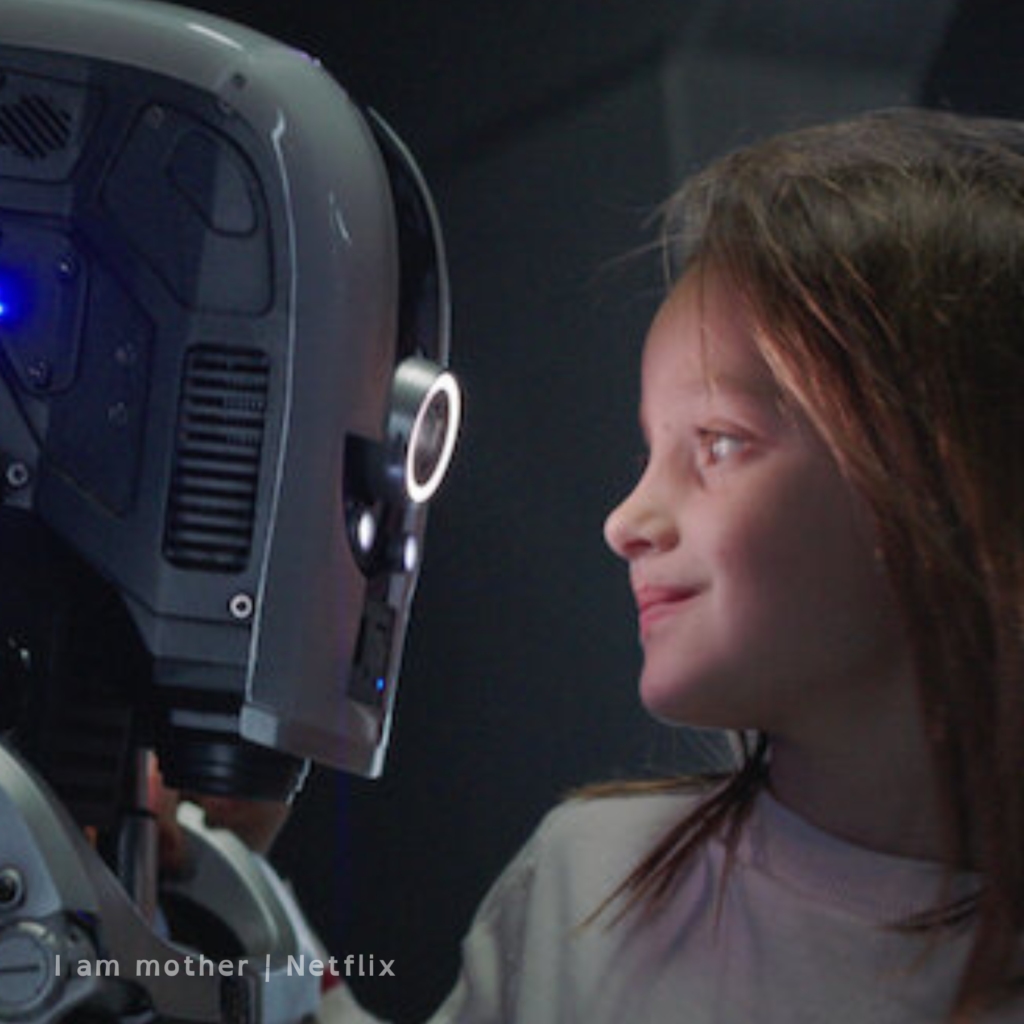Smarter Parenting with AI – Raising the Next Generation of Geniuses with a Side of Robots
By Vidisha Gupta
Parenting and educating are two of the oldest, hardest jobs out there. And now, thanks to artificial intelligence (AI), we have a whole new toolbox to help raise a generation that’s not only smarter but maybe a little better behaved too. From homework help to organising snack time, AI is sneaking into our homes and classrooms – and honestly, it’s a bit of a game changer. But like all game changers, there are a few risks worth talking about. So, let’s dive into how AI technology can help us raise the next generation of geniuses – and how to make sure it doesn’t go full Skynet on us.
AI: The Super Nanny We Didn’t Know We Needed
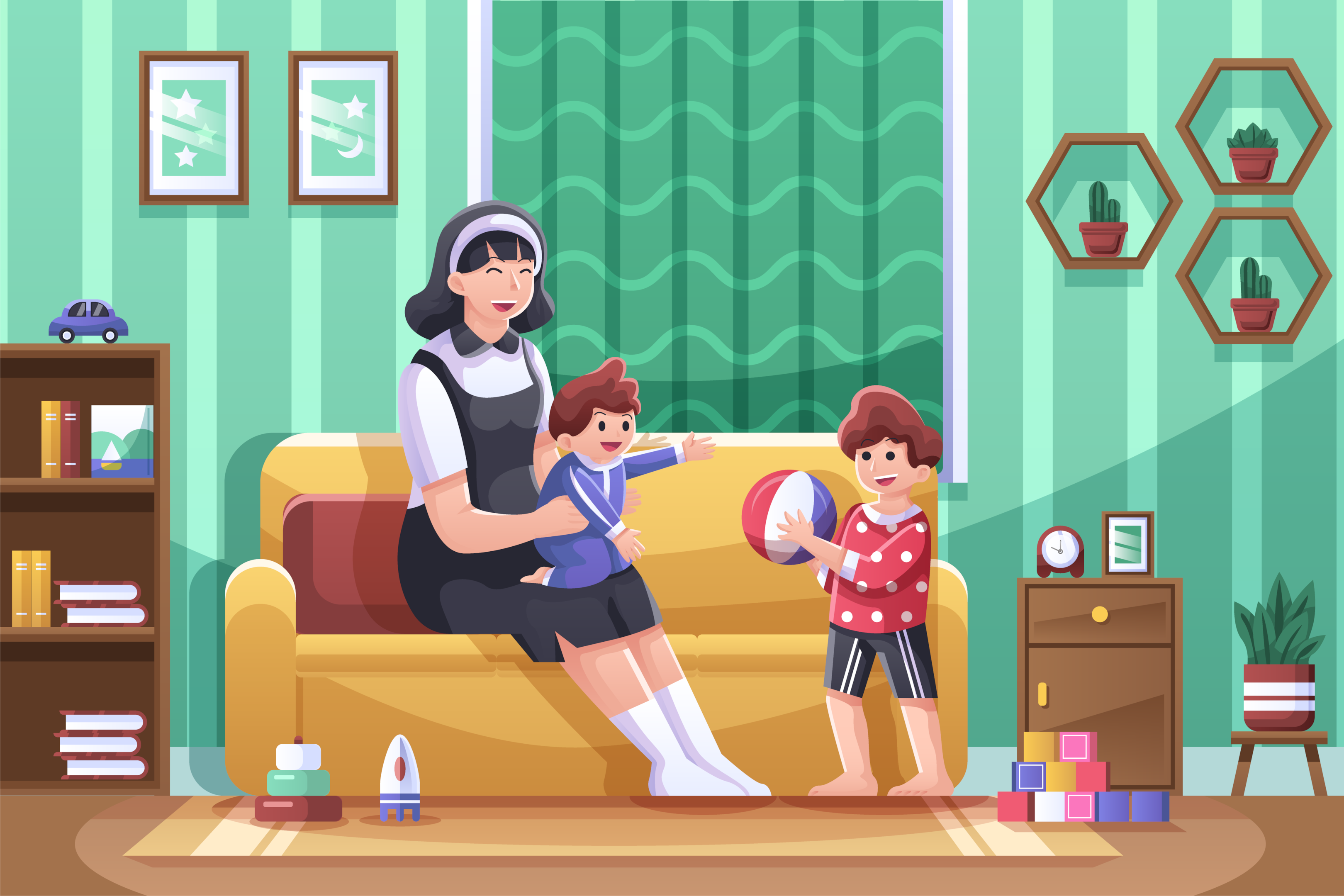
For those of us balancing a hundred tasks at once, AI is like having a live-in super nanny. AI-powered tools like Alexa, Google Assistant, and Siri are already helping parents keep track of schedules, from doctor’s appointments to piano recitals. You can ask Alexa to remind your child to do their homework, or Siri can help find healthy dinner ideas when you’ve got 10 minutes and a fridge full of mystery leftovers.
Check out this reel from @dearkatebrandstrategy on Instagram, where she spills the beans on super fun and efficient ways AI like ChatGPT gives easy answers to the complex concerns of a parent. In her video, she shows how to upload your child’s school schedule to Google Calendar with just a few simple steps, making scheduling and remembering important dates a breeze. This clever use of artificial intelligence turns what could be a tedious task into a quick and easy process, thanks to ChatGPT. It’s just one of the fantastic examples of how technology can streamline everyday tasks and bring a touch of tech-savvy magic to busy family life.
But beyond the usual voice assistant tasks, AI systems are stepping into some pretty sophisticated roles. Educational apps and platforms like DreamBox or Khan Academy use AI technologies to tailor learning experiences to each child. Does your kid struggle with fractions but zoom through geometry? No problem. The AI technology tweaks lessons to focus on the weak spots, adapting as they go along.
Translation? Parents can stop sweating over whether they’re explaining long division right, and teachers can focus on the personal touch rather than crowd control.
Classroom 2.0: AI-Powered Learning
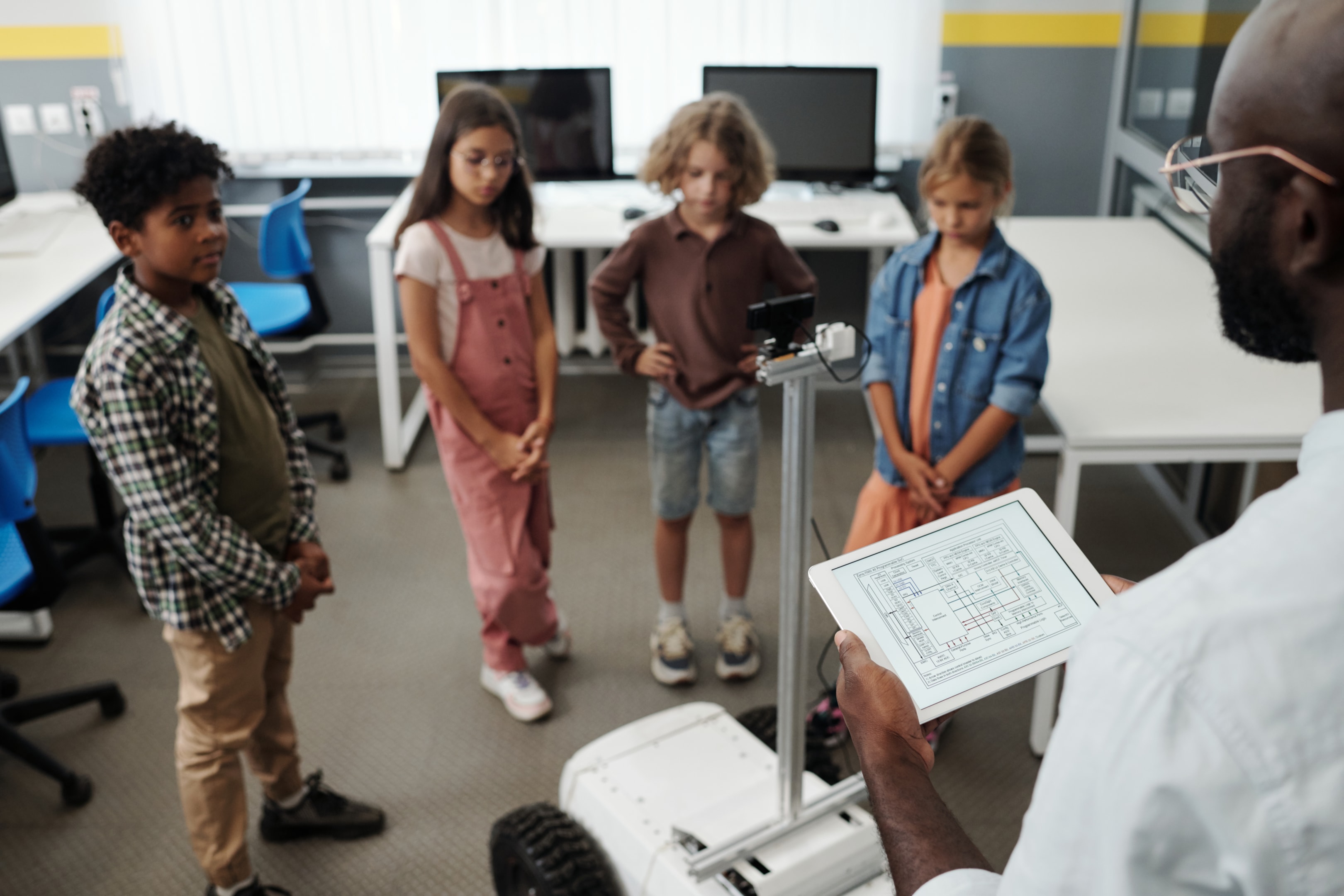
Let’s face it: today’s classrooms are not your grandma’s one-room schoolhouse. With AI technologies, teachers have access to tools that streamline lesson planning, grading, and even identifying kids who may need extra support. Platforms like Google Classroom, Microsoft Teams, or Classcraft use AI to automate tasks, allowing teachers to spend more time interacting with students and less time drowning in paperwork.
AI can also help personalise the curriculum to fit each child’s learning style. No more cookie-cutter lessons that leave half the class bored and the other half overwhelmed. With AI tools, students can get individualised instruction that moves at their pace.
But the real magic happens when AI helps teachers identify patterns in student behaviour or performance. Maybe a student is struggling silently, or perhaps they’re particularly talented in an unexpected subject. AI models can flag this before it becomes a bigger issue (or missed opportunity), allowing for more targeted interventions.
AI in Special Education: Tailoring Learning to Every Need

Artificial Intelligence is shaking up special education, making it more personalised and effective than ever. Gone are the days of one-size-fits-all teaching methods. With AI systems, educators can now offer customised learning experiences that cater to each student’s unique needs, whether they need extra support or advanced challenges.
AI tools can adapt lesson plans in real-time, providing immediate feedback that helps students grasp difficult concepts and build on their strengths. For instance, students who struggle with reading might get more phonics-based exercises, while those who breeze through science can dive into more complex problems. This adaptive learning approach helps ensure that every student receives the support they need to succeed.
SchoolAI is one such example of how AI can make a difference in special education. This AI tool uses machine learning and generative AI to tailor educational content to individual needs. It offers a personalised learning experience that adjusts as students progress, providing targeted support and fostering critical thinking skills.
The beauty of AI in this context is its ability to address diverse learning styles and needs while promoting academic integrity and data privacy. These AI systems are designed to be used ethically, ensuring that the technology supports learning without compromising student information.
Smarter Kids, But Are They Safe?
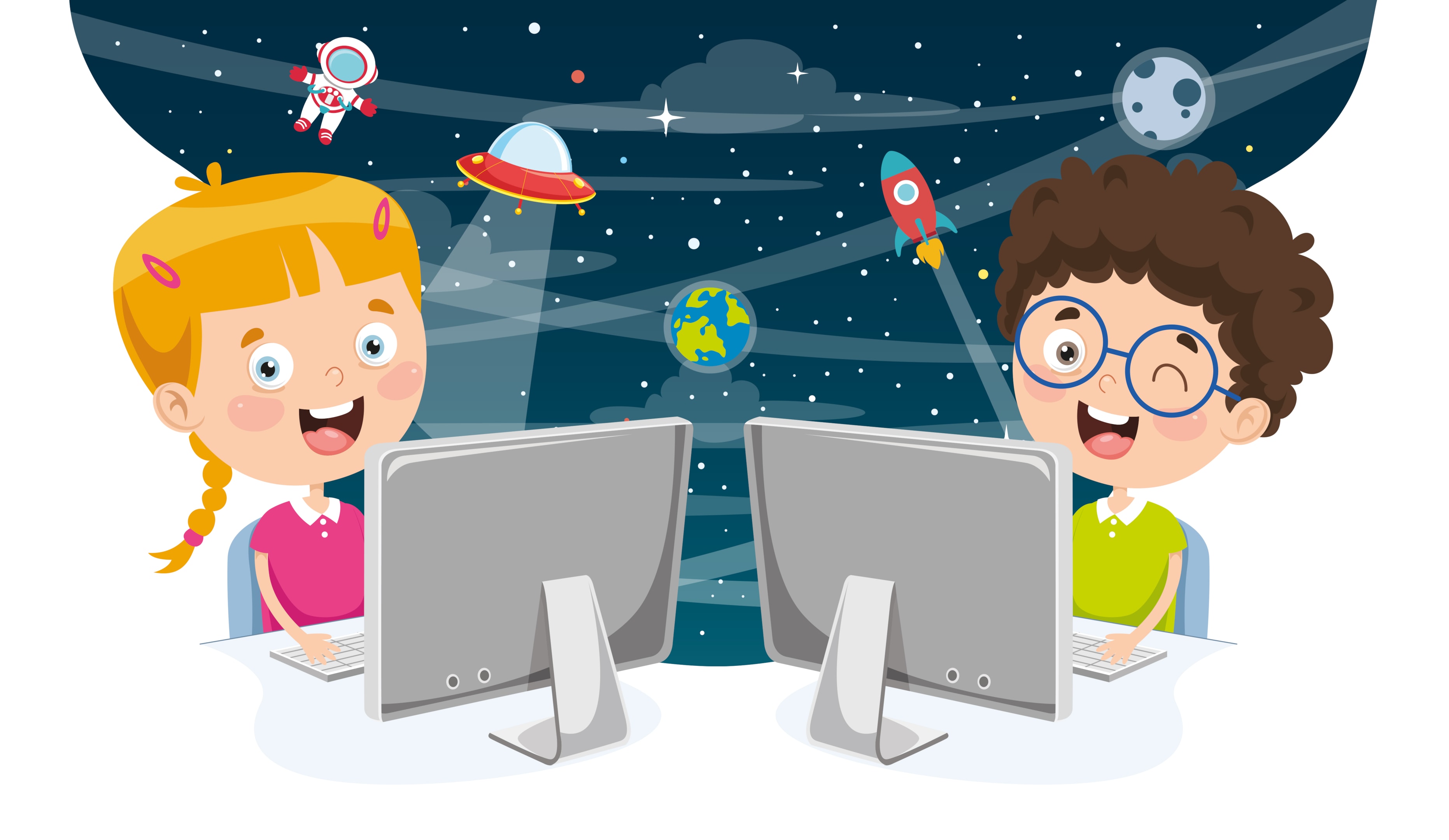
Here’s where things get interesting. While AI is amazing for streamlining education and parenting, it’s not without its risks. One of the most significant concerns is data privacy. AI collects loads of data to customise experiences, and it’s crucial to ask: where does all this information go? From browsing history to learning progress, AI systems collect data that could, in theory, be misused by hackers or sold by third parties.
So, what can we do? For starters, opt for AI tools with transparent privacy policies. Make sure the platforms you use follow strict data security protocols and give you control over what data is collected. Many apps allow you to opt out of certain tracking features, so use them!
Another potential risk is algorithmic bias. AI models are only as unbiased as the data they’re trained on. If the data is skewed, the AI program can inadvertently perpetuate existing baises. This means it’s essential to stay aware of the AI systems your child is interacting with and advocate for tools that are actively working to address and minimise bias.
Another risk is over-reliance on AI. Yes, it’s great that Alexa can remind your children to do their chores, but if your kid starts thinking that the voice from the speaker is their actual parent, we’ve got a problem. AI should be a tool, not a replacement. It’s important to strike a balance and ensure your children are still developing essential life skills, like problem-solving, creativity, and – most importantly – social skills. You know, talking to a real person.
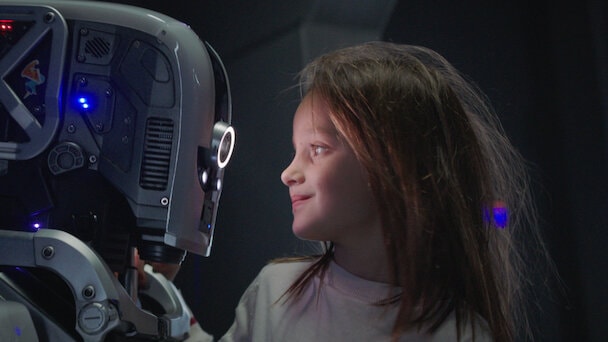
Can AI Raise a Genius?
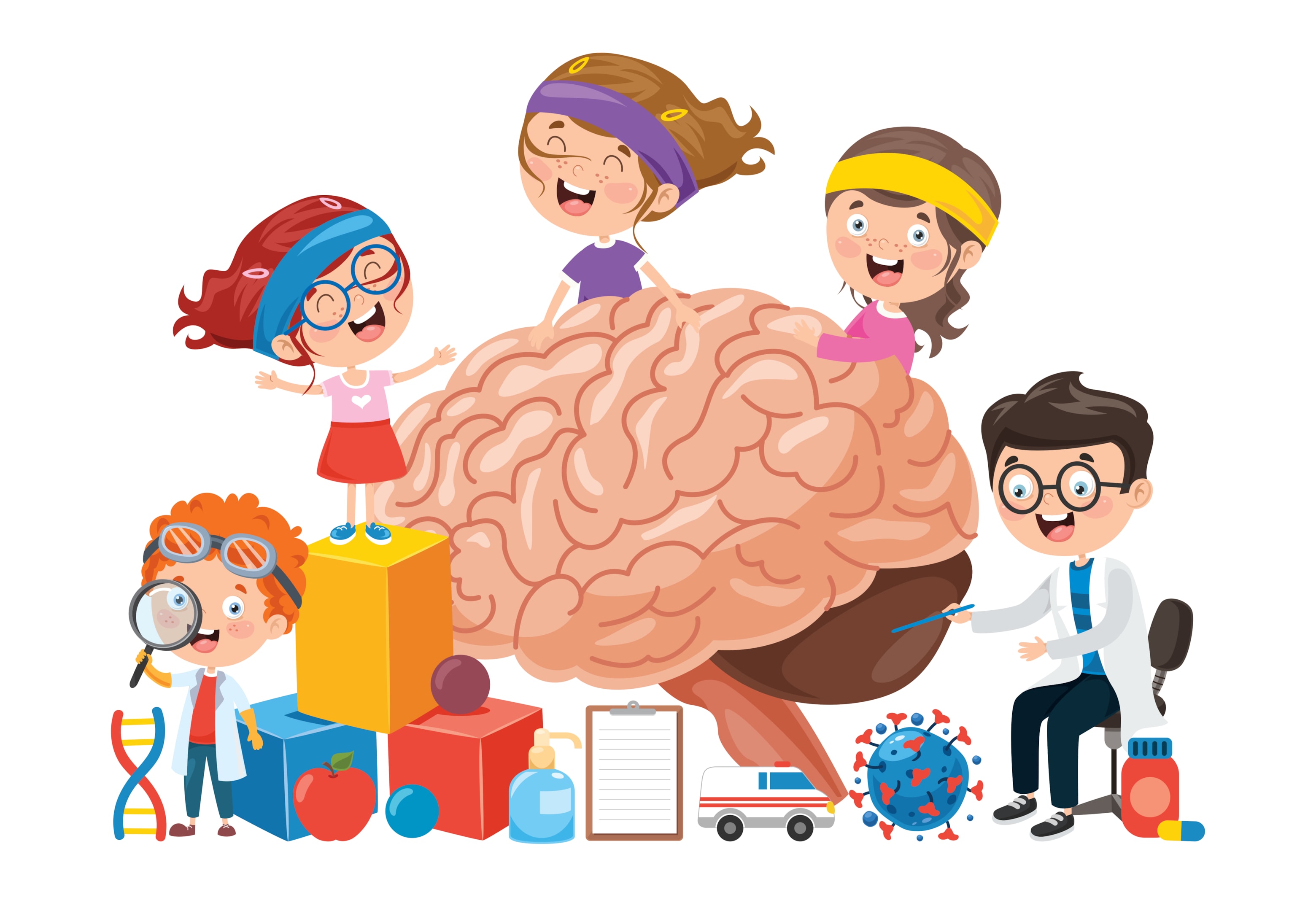
Absolutely. AI is already shaping the minds of tomorrow’s leaders, whether they’re using adaptive learning programs to excel in mathematics or getting career advice from AI-driven guidance counsellors. AI can introduce kids to STEM (Science, Technology, Engineering, and Math) in a way that’s interactive and, dare we say, fun. From coding robots like WhalesBot to AI tutors like Squirrel AI, these technologies aren’t just explaining children facts – they’re educating them about how to think.
Moreover, AI helps level the educational playing field. Students from different backgrounds, with varying access to resources, can all benefit from the same personalised attention AI can provide. A child in rural Idaho could be getting the same high-level tutoring as a student in Silicon Valley.
The Role of AI in Extracurricular Education: Beyond the Classroom
AI isn’t just transforming the classroom – it’s also opening up exciting possibilities for extracurricular education. From coding clubs to creative arts, AI tools are making it easier for students to explore new interests and develop their talents outside of traditional school hours.
One standout example is the NYU Music Experience Lab (MusEDLab), a treasure trove of AI-powered applications designed to make learning music an engaging and fun experience for children. The lab hosts a variety of AI tools that allow students to experiment with creating music, exploring rhythms, and even composing their own songs. These tools utilise machine learning algorithms to provide instant feedback the same way a high school teacher would, and adapt to each student’s skill level, making music education more interactive and personalised. For instance, AI apps in the MusEDLab might use generative AI to teach students how to compose music by suggesting chord progressions and melodies based on their input.
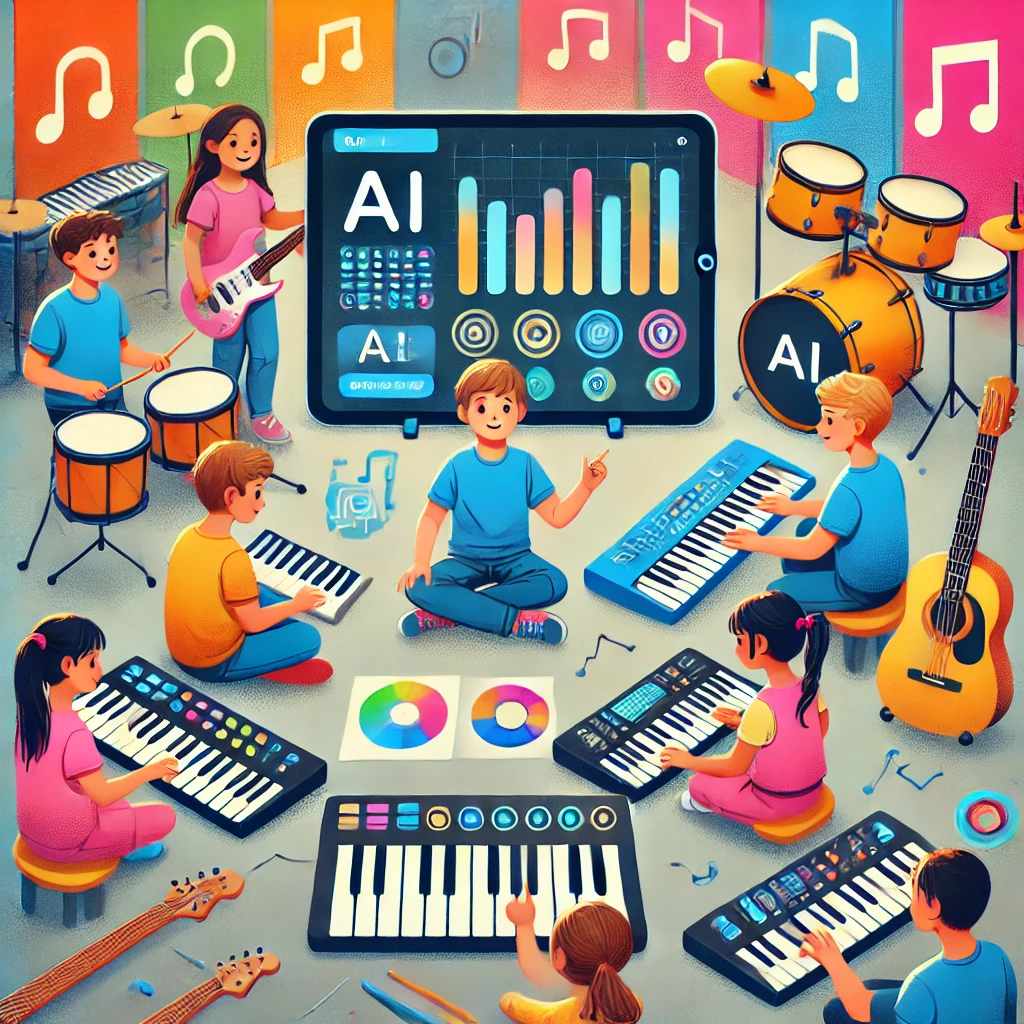
Beyond music, these new technologies are revolutionising other extracurricular activities as well. Whether it’s a virtual reality program for exploring space, AI-driven platforms for learning new languages, or interactive coding challenges, the possibilities are endless. These virtual schools powered by artificial intelligence make it easier for children to dive into new areas of interest in the early stages of education.
But… Can AI Raise a Good Human?
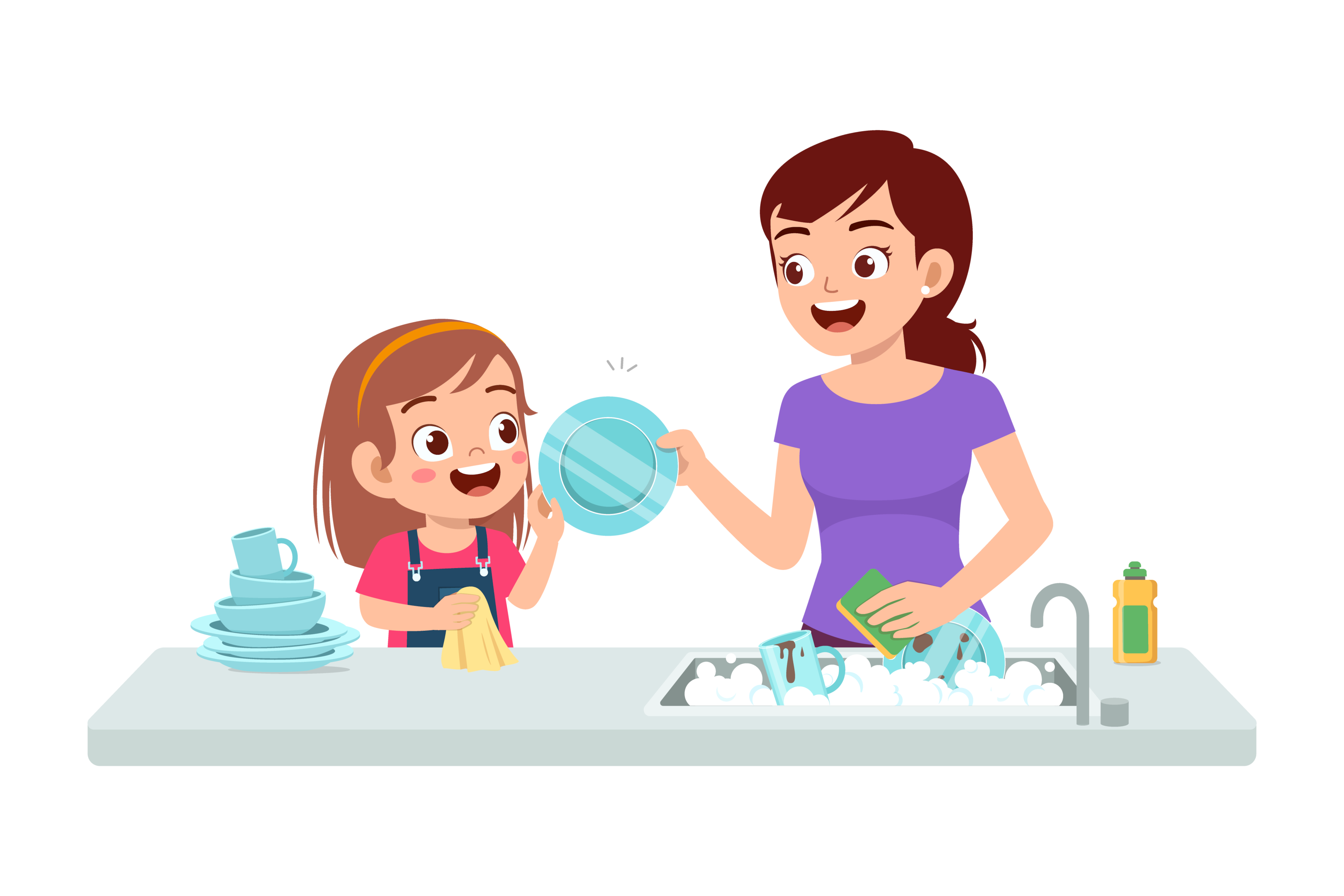
While AI can help develop academic genius, there’s the question of ethics and emotional intelligence. As parents and educators, we need to ensure AI is used to complement – not replace – our human roles in instilling empathy, kindness, and responsibility. AI can handle the math, but it’s up to us to show kids how to deal with feelings, friendships, and the occasional failure.
To bridge this gap, some developers are creating AI for parents, that focus on emotional well-being. Apps like Woebot, a chatbot for mental health, uses AI to teach kids about emotional intelligence and resilience. But again, these tools should be supplements to real, human interaction.
Risks and How to Avoid Them
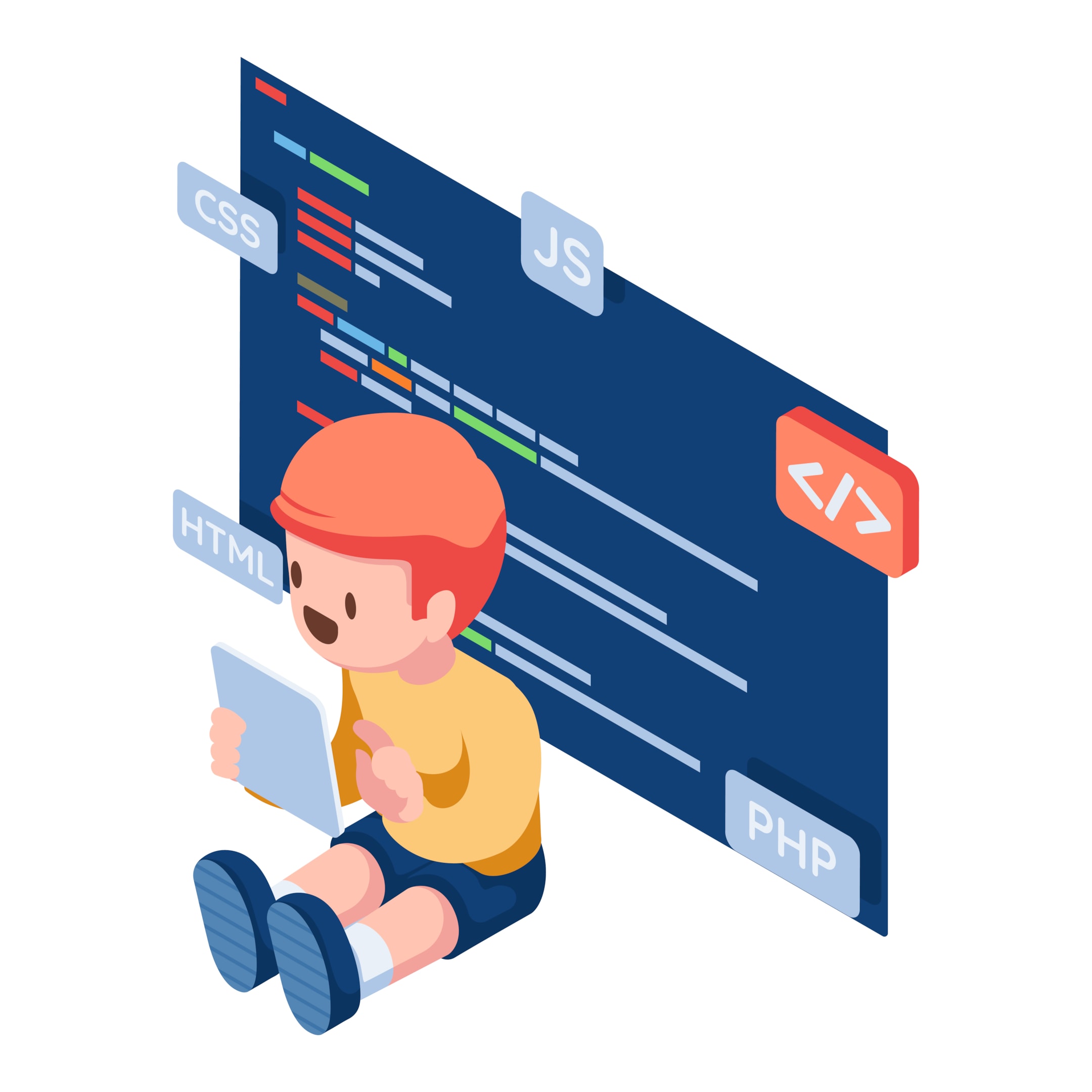
So how do we harness AI’s full potential while avoiding the pitfalls? Here are a few tips:
- Monitor and Manage Screen Time: While AI-driven learning apps are great, too much screen time can be counterproductive. Set limits and encourage outdoor activities or hands-on learning experiences to balance out all the digital input.
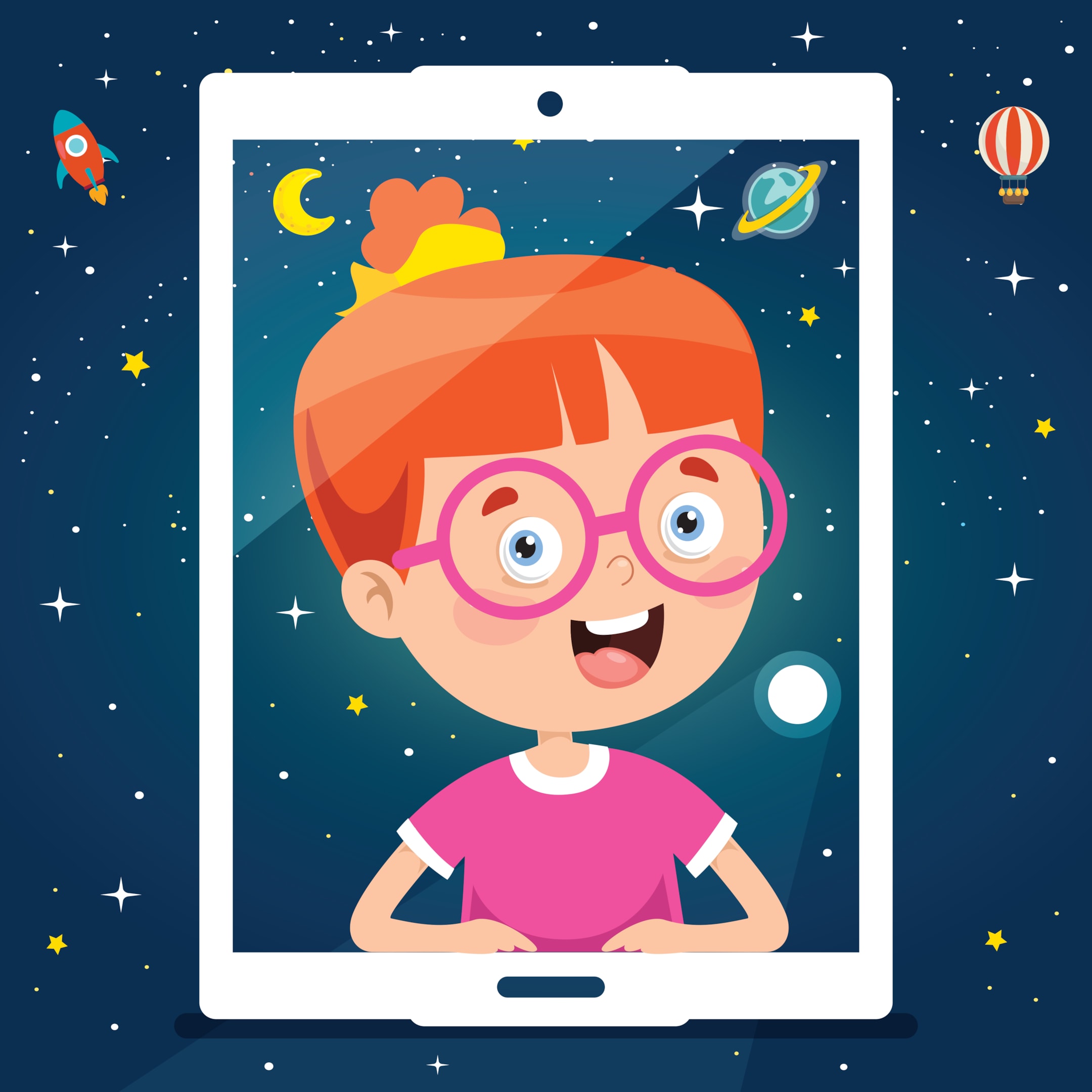
- Stay Involved: Don’t leave your child’s education entirely up to the machines. Engage with them about what they’re learning, ask questions, and offer additional context. To encourage children to understand AI and become active learners rather than passive consumers of Artificial Intelligence, it’s essential for you to engage as an active participant, not merely a spectator.
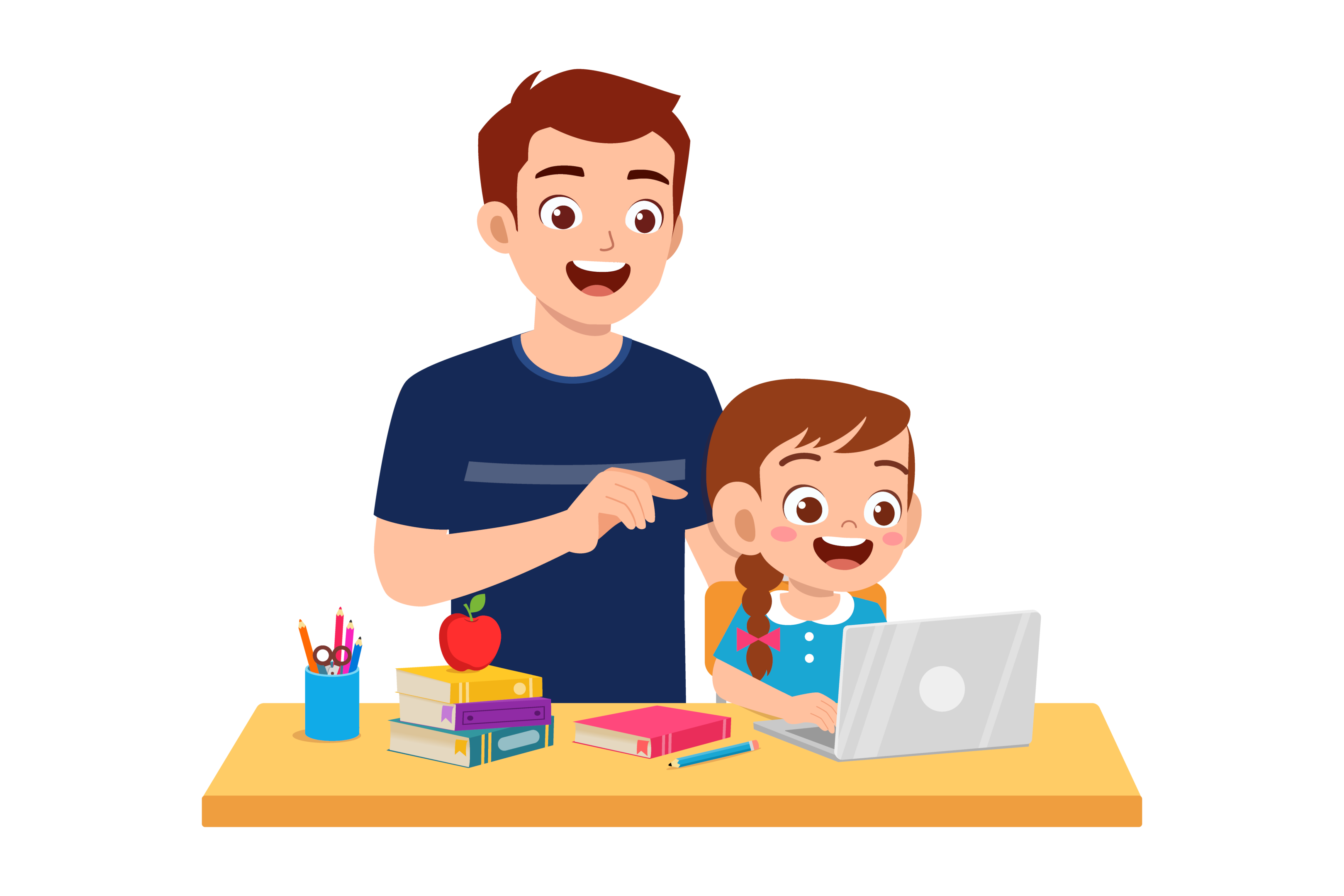
- Keep Up with Tech: Artificial Intelligence evolves fast, so stay informed. Learn how the systems you’re using work and what data they collect. You wouldn’t hand your child the keys to a car without first learning how it works – so do the same with their AI tools.

- Teach Critical Thinking: Artificial intelligence can answer questions, but it’s up to us to teach children how to ask the right ones. Encourage critical thinking, problem-solving, and creativity – skills no AI tool can truly replace.
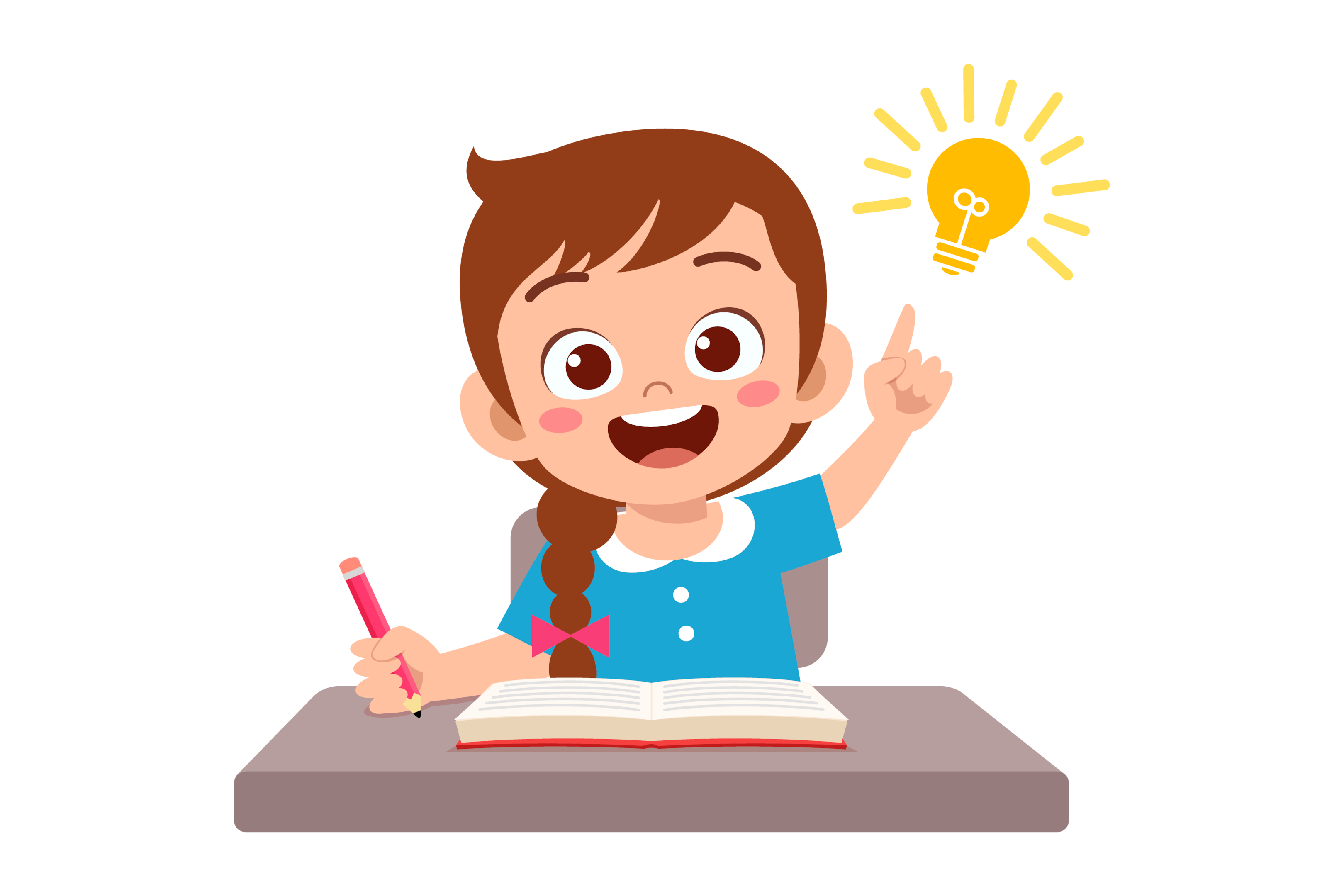
Artificial Intelligence Advocates You Should Know
If you’re eager to dig deeper into how AI technologies can support your parenting and teaching journey, these experts are sharing valuable insights on how to use artificial intelligence to raise smarter, more well-rounded children in the digital age.
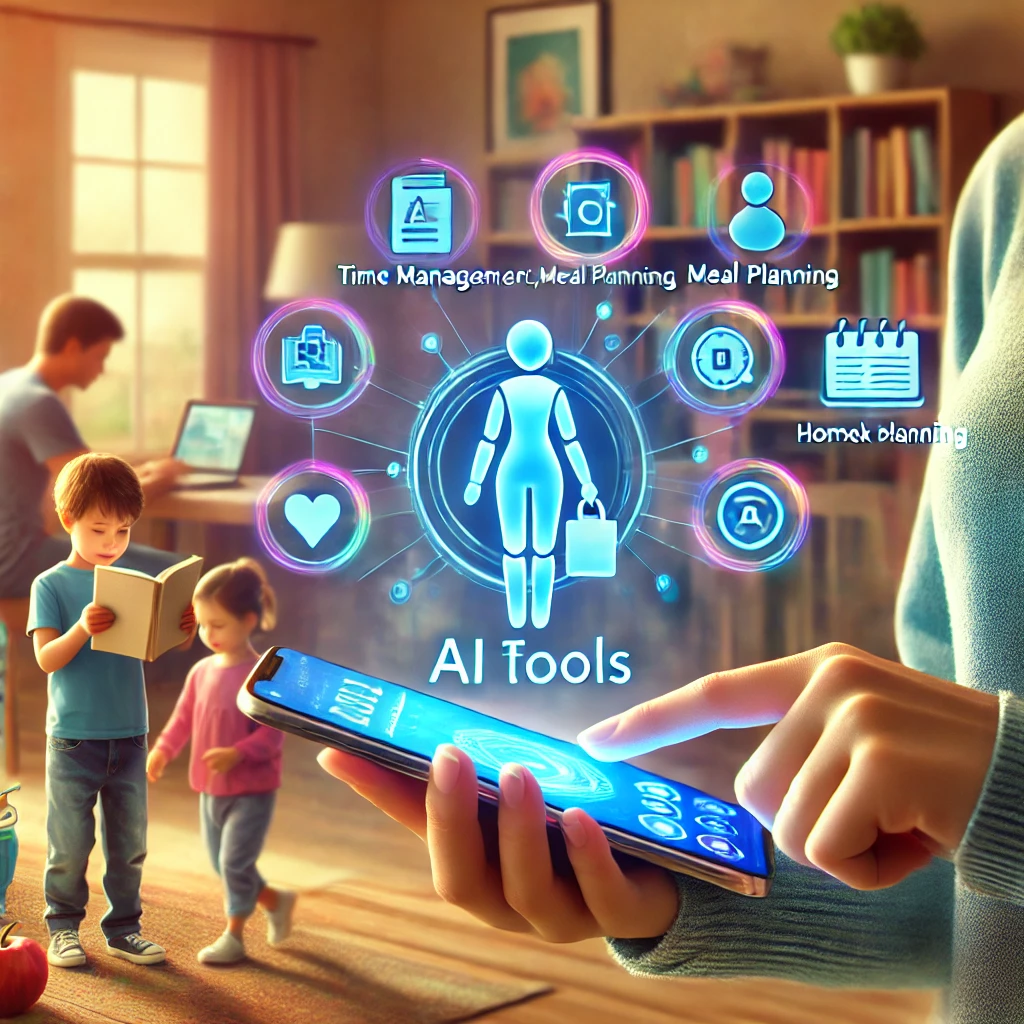
- @ai4kindlittles
For parents concerned about screen time, @ai4kindlittles offers an alternative approach to AI-powered tools. They explain how blending traditional values with generative AI tools can foster creativity, problem-solving, and critical thinking skills in children. Instead of fearing the digital age, @ai4kindlittles promotes using AI ethically to prepare kids for a tech-driven world – without sacrificing human interaction or academic integrity. - @ams.mamaclub
This dynamic duo of first-time mothers shares their journey and offers clever tips to use AI to make tasks like meal planning a play date with your computer. In a world where being a parent can feel overwhelming, their words and experiences offer practical advice about where to begin as a new parent and discover artificial intelligence as a wonder of modern parenting. - @erica.g.cinelli
This AI-savvy parent shares parenting hacks using artificial intelligence tools to ‘save hours’ in the day. Her reels explain how these AI powered solutions ease parental controls on all children’s activities and allow them to spend more time engaging with society and enjoying family activities. From simplifying schedules to aiding with homework, her tips help parents prepare themselves and their kids for the future.
The Future of AI and Parenting
We’ve only just begun to scratch the surface of what AI can do in parenting and teaching. From organising chaotic households to delivering personalised education at scale, AI has the potential to raise a generation that’s not only smarter but more well-rounded.
However, it’s crucial to remember that AI is just a tool, not a substitute for real human interaction. When used wisely and with a sprinkle of caution, artificial intelligence can help us raise children who are not only brilliant but also capable of navigating the complexities of a tech-driven world. After all, raising a genius is great, but raising a good human? That’s the real win.
So, go ahead – embrace the robots. Just don’t let them take over the playdate!
Written by Vidisha Gupta
